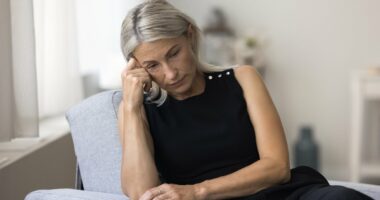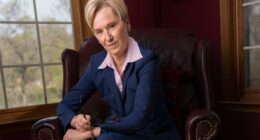Share this @internewscast.com
Facing the end of your life is an intensely emotional process both for the patient and their family. The uncertainty of it all often means there are many unanswered questions and perhaps even fears. Guiding patients through their final days is all about support and comfort, says Dr Sarah Holmes, Chief Medical Officer at Marie Curie – the UK’s leading end of life charity.
This includes dealing with a wide range of concerns and emotions from those in palliative care and through her work, she has witnessed it all. However, there is one recurring regret most of her patients experience.
Dr. Holmes has spent years guiding patients during one of life’s most challenging transitions and has encountered all types of situations in her years of doing so.
Many would believe the fear of physical pain is up there with the biggest concern among those facing the end of their lives, alongside worrying about the uncertainty of what dying will be like.
Previously speaking to the Express, Dr Holmes explained: “The biggest worry for many is whether they might experience pain, but with proper medication, that’s usually quite manageable.”
Dr Holmes said physical suffering is a common lingering concern among those dying, but the biggest concern she has witnessed is the emotional burden.
She told how the emotional concern manifests itself by worrying about any unfinished business, which can lead to regret.
Dr Holmes explained: “People don’t tend to regret what they’ve done in life as much as what they’ve left undone.
“The most common regret I hear is not having lived fully, not saying the things that needed to be said, or not doing the things they always wanted to do.”
“One of the things we focus on is ensuring people have the chance to address these regrets.
“Whether it’s making amends with loved ones, fulfilling a final wish, or simply having those difficult conversations they’ve been avoiding.”
Dr Holmes encouraged people to have open and honest conversations about death and dying “to ensure that when the time comes, there are no regrets about what was left unsaid or undone”.
For anyone affected by death, dying, or bereavement, Marie Curie has a free Information and Support line, with trained professionals who can give practical information or provide a listening ear, that you can call 0800 090 2309.













